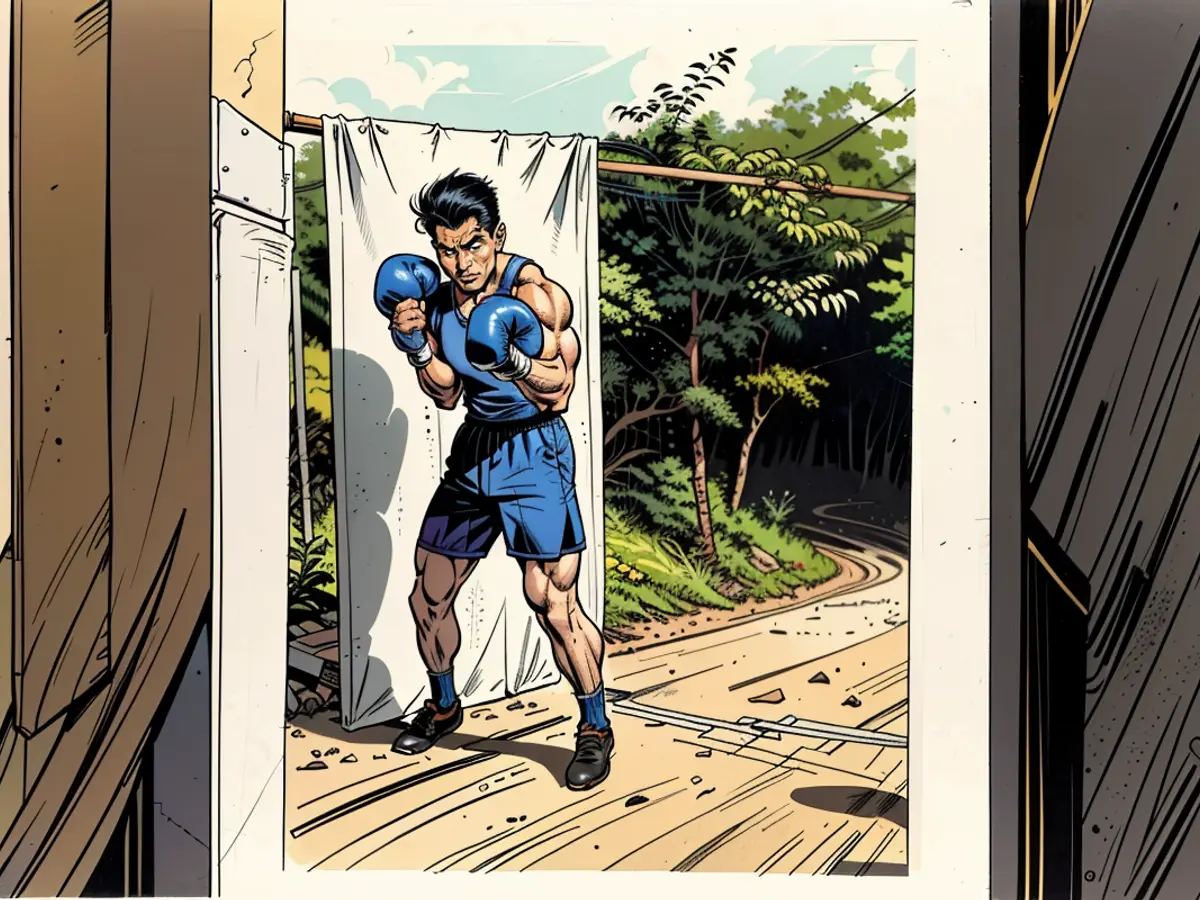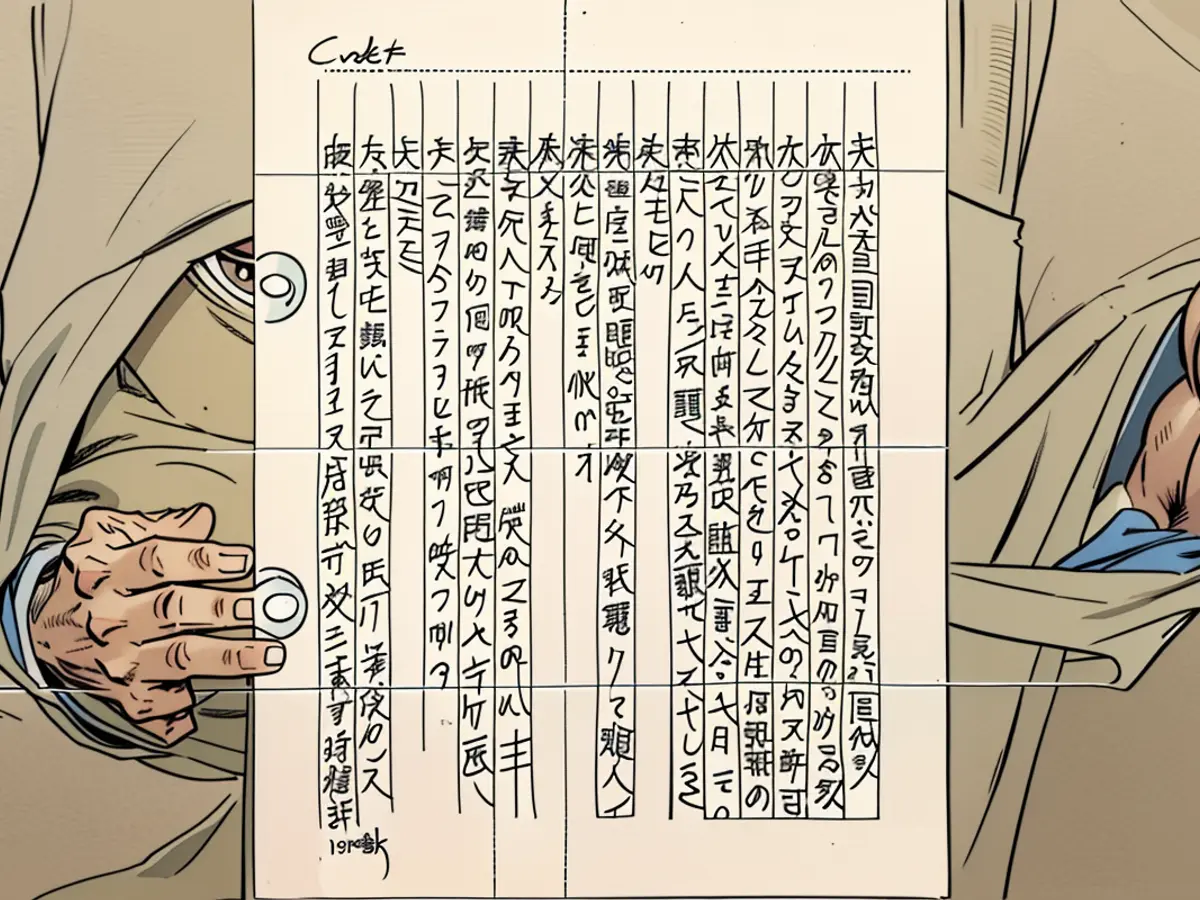He holds the record for the longest time spent on death row worldwide. A judicial decision could potentially exonerate him.
Now, the longest-serving death row inmate globally has a chance to prove their innocence.
On Thursday, a Japanese court will announce its verdict in the retrial of 88-year-old Hakamata, who was sentenced to death in 1968 for allegedly murdering a family in a prolonged legal battle that's garnered international attention and sparked appeals to abolish the death penalty in Japan.
During the retrial, Hakamata's legal team presented new evidence proving their client's innocence, while prosecutors argued there was enough evidence to uphold the death sentence.
Originally a professional boxer, Hakamata hung up his gloves in 1961 and took a job at a soybean processing plant in Shizuoka, central Japan. This decision would later haunt him.
When Hakamata's boss, his boss's wife, and their two children were discovered dead in their home in 1968, stabbed to death, Hakamata, a divorced bar worker, became the prime suspect.
After days of intense interrogation, Hakamata initially confessed to the charges against him. However, he later recanted, claiming police had coerced his confession through beatings and threats.
Despite his insistence that the police had fabricated evidence, Hakamata was sentenced to death in a 2-1 decision by judges. The dissenting judge resigned in disillusionment six months later.
Hakamata, who has consistently maintained his innocence, spent over half his life awaiting execution, only to be freed ten years ago when new evidence led to his release.
A DNA test on the blood found on the trousers revealed no match to Hakamata or the victims, and the Shizuoka District Court ordered a retrial in 2014. Due to his age and deteriorating mental health, Hakamata was temporarily freed as he prepared for his retrial.
The Tokyo High Court initially rejected the request for a retrial, but in 2023, an order from Japan's Supreme Court prompted a second chance.
Retrials are rare in Japan, with 99% of cases resulting in convictions, according to the Ministry of Justice website.
A justice system under scrutiny

As the world watches, a potential acquittal might not register with Hakamata, who, due to his lengthy incarceration, has shown signs of mental decline and now resides in his own world, according to his 91-year-old sister, Hideko, who has been vigorously advocating for his innocence.
Hakamata rarely speaks and shows no interest in others, Hideko informed CNN.
“Sometimes he smiles happily, but that’s when he’s in his delusion,” Hideko explained. “We haven’t even discussed the trial with Iwao because of his inability to recognize reality.”
However, for Hakamata's supporters, the case signifies more than just one individual.
It brings up concerns regarding Japan's emphasis on confessions to secure convictions and suggests this may be a reason why the country should reconsider the death penalty.
“I’m opposed to the death penalty,” Hideko declared. “Convicts are also human beings.”
Japan stands as the only G7 nation, aside from the United States, to retain capital punishment, though executions were not carried out in 2023 as per the Death Penalty Information Center's records.
Hiroshi Ichikawa, a former prosecutor who hadn't been involved in Hakamata's case, commented on historically Japanese prosecutors' encouragement to secure confessions even if it meant forcing or manipulating defendants to admit guilt.
An emphasis on confessions contributes to Japan's impressive conviction rate, Ichikawa explained, in a country where an acquittal can significantly harm a prosecutor's professional standing.
Japan's Ministry of Justice declined to comment on the ongoing case.
A long battle for exoneration

For 46 years, Hakamata remained behind bars based on his controversial conviction, which relied on tainted evidence and Hakamata's original confession, which his lawyers allege was coerced.
Hideyo Ogawa, Hakamata's lawyer, told CNN that Hakamata was physically restrained and interrogated for over 12 hours a day for 23 days, without a defense attorney present.
“The Japanese judicial system, especially then, was a system that permitted investigative agencies to exploit their covert nature to commit illegal or investigative transgressions,” Ogawa stated.
Chiara Sangiorgio, Death Penalty Advisor at Amnesty International, said Hakamata's case exemplifies many issues with Japan's justice system and underscores the flaws and unreliability of his original conviction, prompting the retrial.
Death row inmates in Japan are typically kept in solitary confinement, with limited contact with the outside world, Sangiorgio stated, and executions are carried out in secret with almost no prior warning to families and lawyers.
Despite his mental decline, Hakamata has managed to enjoy some of the simple pleasures of freedom over the past decade, including adopting two cats in February.
"Iwao started to take notice of the cats, worry about them, and take care of them – quite a shift," Hideko said.
Every afternoon, a group of Hakamata's supporters takes him on a drive, where Hideko reveals Hakamata "buy[s] an abundance of pastries and juice."
Even though Hakamata might not grasp the importance of the Thursday decision, his relatives and countless supporters could potentially witness the world's longest-serving death row inmate being proclaimed innocent permanently.
"I wish he gets to enjoy a prosperous and liberated life from now on," Hideko expressed.
This report was aided by CNN's Nodoka Katsura.

In light of Japan's international attention, the world will eagerly await the verdict from a Japanese court regarding the retrial of 88-year-old Hakamata, who is currently the longest-serving death row inmate in Asia.
The outcome of this retrial in Asia could potentially spark further discussions about the abolition of the death penalty not only in Japan but also on a global level.







